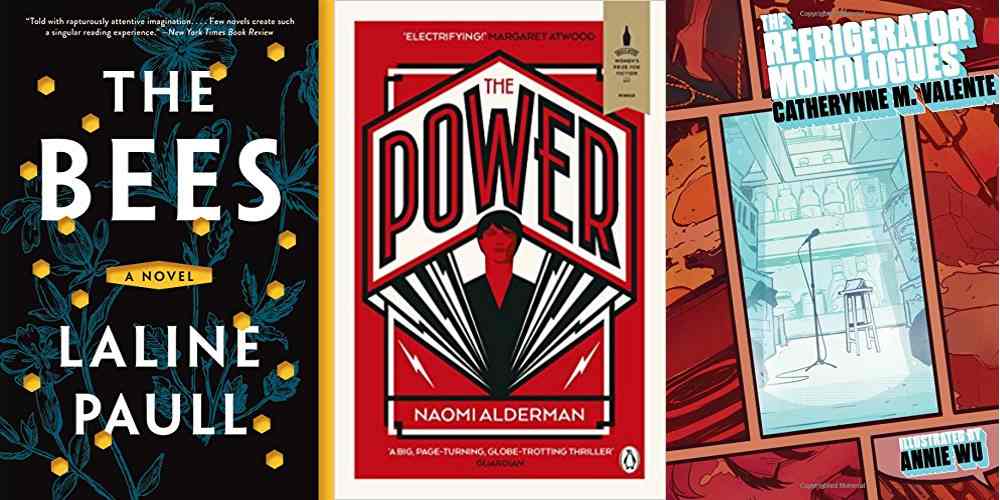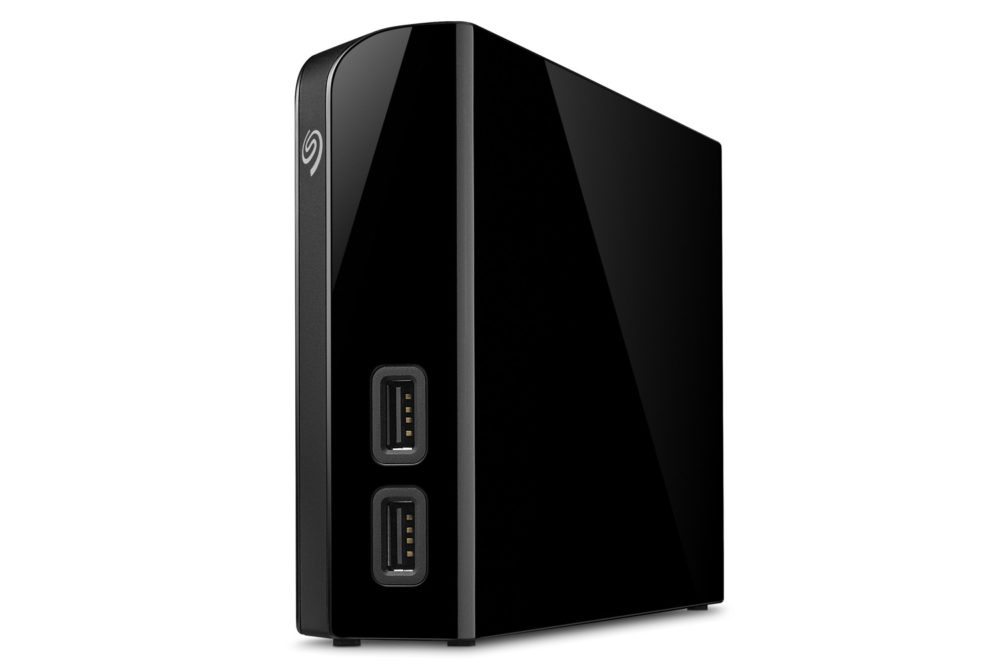 I’m taking over Stack Overflow this week from Jonathan, who is still trying to dig his way out from a bookslide somewhere in the paper mountain range we both like to roam in. When I offered to subject you to my taste in books for a week, I figured on writing a piece called “4 Great Books by Women Writers.” The only problem being, I hadn’t read one of the books. I wasn’t too concerned; I was sure it was a shoo-in. The 4th novel had won a prestigious “Novel of the Year” award and was highly acclaimed in many places.
I’m taking over Stack Overflow this week from Jonathan, who is still trying to dig his way out from a bookslide somewhere in the paper mountain range we both like to roam in. When I offered to subject you to my taste in books for a week, I figured on writing a piece called “4 Great Books by Women Writers.” The only problem being, I hadn’t read one of the books. I wasn’t too concerned; I was sure it was a shoo-in. The 4th novel had won a prestigious “Novel of the Year” award and was highly acclaimed in many places.
The book literally put me to sleep, over and over again. A great shame. There’s something disconcerting about not enjoying a book that lots of other people love. It leaves me thinking, “What did I miss?” It was my book group book this month, and after hearing them talking about it, I’m still not sure why the acclaim.
Here then are three, not four, great books by women writers. Dystopian visions all. All different, all exceptional reads.
 The Power by Naomi Alderman
The Power by Naomi Alderman
What is the book about?
The Power is a dystopian vision predicated on a simple premise. What if women evolved a way of physically dominating men? Women in the novel begin to manifest the ability to create and discharge electricity. Suddenly victims of domestic abuse can fight back, women no longer fear men with guns, and regimes that restrict women’s rights can no longer do so without reprisal.
Alderman imagines the seismic shift this would create in society. Politics, religion, and relationships are all turned on their heads. Men rail against the new world order, but to what effect? Amongst the chaos, the novel focuses on several strong women who manifested the Power and examines how it affects them, whether it be boon or bane.
Alderman uses her premise to examine attitudes towards women today, both in how society and popular culture depicts them, but also how history portrays them too. The main story is wrapped up in a very neat device that I can’t say too much about. Whilst this isn’t a twist, as such, it adds another layer to an already interesting tale.
Why should I read it?
The Power is the best book I’ve read in quite some time. I feel like I type those words a lot—I like books and stories, and tend towards hyperbole when I find a good one. Much as I enthuse about a great many books, there are few I read thinking, “This book is going to be around for a long time.” The Power is this generation’s The Handmaid’s Tale.
It does not make for comfortable reading. The Power is a brutal book.
Any readers of comic books know that with great power comes great responsibility. How will the female half of society behave now it has the means of control? Alderman’s answer will not sit well with some readers. It is often imagined that states and institutions run by women would not fall victim to the excesses of testosterone at the top. There is a school of thought that women are gentler and less prone violence and greed than men. The thinking goes that institutions led by women would be better run. The Power does not subscribe to this theory.
Alderman paints a dark vision of her future. It’s a meditation on the corrupting nature of power, both personal and political. It’s much more than that though. By placing the jackboot on the other foot, Alderman cleverly mirrors the ways women are treated across the globe today. The terrible things the men in The Power complain about are a reality for many women worldwide, right now.
The book inevitably draws a comparison with The Handmaid’s Tale and resonates all the more deeply, thanks to the resurgence of Atwood’s classic and its new TV adaptation. The Power is good enough to stand alongside The Handmaid’s Tale as one of the giants of dystopian fiction. It’s not just me who think’s the The Power is a good book. It won the Bailey’s Women’s Prize for Fiction in 2017.
 The Refrigerator Monologues by Catherine M Valente.
The Refrigerator Monologues by Catherine M Valente.
What is the book about?
Meet the Hell Hath Club. A band of refrigerated women. Those that died to give their superhero boyfriends some depth; something to do. The Refrigerator Monologues is a series of short stories told by members of the Hell Hath club who hang out in the same cafe. They console one another and rail against the vainglory of their exes (whilst of course it is they who are “ex,” in the most permanent sense.)
There are six stories in all, including the tale of Paige Embury, girlfriend of Kid Mercury, who fell to her death whilst he boyfriend fought his nemesis. There’s Bayou, a mermaid who meets a half merman super-husband but finds their love can’t survive a family tragedy. Samantha Dane was killed because she hung around with the wrong superhero. Murdered to bring him to the fight. Each of the six stories is linked and features an easily recognizable refrigerator trope.
“I belong in the refrigerator. Because the truth is, I’m just food for a superhero. He’ll eat up my death and get the energy he needs to become a legend.”
Why should I read this book?
The short answer is, “Because it’s brilliant.” Valente dissects easily recognizable comic-book tropes and lays them bare for all to see. Much as The Power examines the raw deal women get in much of society, Valente explores the paper-thin representation of women in traditional comic book stories.
“Origin stories are like birthday parties: Very exciting and colorful and noisy, but in the end they’re all the same.”
Her writing is funny and on the nose. If you love comic books in film or paper format, but want a little more from them, The Refrigerator Monologues is the book for you. Not all of the stories were to my taste, but at least four of them are just wonderful encapsulations of the short story.
If you’re thinking about writing a superhero story, you should definitely read The Refrigerator Monologues. It simultaneously demonstrates how to write fizzing fiction, and what to avoid if you want don’t want to put half the population on ice.
The Bees by Laline Paull
What is the book about?
A totalitarian regime, ruled by a supreme monarch backed by an army of warriors. “Accept, Obey and Serve” is society’s motto. Drones and workers are forced to labor until they are no more use, at which point they are killed; recycled for the common good. What foul dystopia is this?
It’s a beehive.
Born into the Hive is Flora 717. A lowly sanitation worker, destined for a life of servitude. Yet, somehow, Flora is different. She transcends the boundaries of her class and is able to try other roles within the The Hive. Whilst doing so, she bravely defends her sisters from attack, earning respect and notoriety. As her fame rises, she discovers all is not well in The Hive. Secrets are kept and factions jostle for position. Against all this Flora has a secret of her own, a secret that endangers the existence of The Hive. A secret, that should it escape, will mean the immediate execution of Flora 717.
Why should I read it?
The Bees is a startling and original piece of fiction. It takes everything you know about dystopian fiction and turns it on its head because we know the beehive to be one of the wonders of nature. More than that though, it takes the reader deep into the harsh realities of the the hive. The lot of a bee is definitely like something from the harshest of dystopian visions.
I was having a conversation with my son today about how long you should read a book for before giving up. It’s not an easy question to answer. Some of my favorite books have really made me work before they gave up their secrets (Neal Stephenson, I’m looking at you here.) He seemed to think 50 was about right. I know there are some people who agree. I read about 180 pages of my fourth book for this piece before giving up. The Bees is definitely a “grower”. It starts off strong but then seems to fade. In the middle section, I started to worry the story wasn’t going anywhere.
It turns out that Laline Paull was merely constructing something as fabulous as honeycomb. The careful building of life in the Hive does occasionally seem aimless. The similar nature of the book’s characters sometimes made it hard to work out exactly what is going on. Then suddenly it all clicked. I devoured the last 200 pages almost in one sitting. I was desperate to know what would happen to Flora and her hive.
Paull’s evocative descriptions bring the hive to life. Her research was meticulous. Reading The Bees will definitely make you want to learn more about them. Not only the working of the hive but also how Bees interact with plants and wildlife when they are out and about collecting honey. You won’t look at bees or flowers in the same light after reading this book.
This book has almost everything: Heroes, villains, wasps, and true love. The concept though original could have easily led to a book that didn’t live up to its conceit. This is definitely not the case here. The Bees does not hold up a mirror to society like most dystopian novels do. Instead, if offers a magnifying glass into one of the tiny civilizations that bustles away right under our noses. The Bees is an excellent book, a fine variation of a well-worn theme. It’s a book for fiction and nature lovers alike.
So, those are my three books. Similar themes, very different executions. All excellent. I could have added more books to my list of great books written by female authors if I hadn’t written about some of them already. If you enjoyed this review do check out my post from earlier in the year that contains spaceships, pirates, and midwifery.
Disclaimer: I received a review copy of The Refrigerator Monologues.


